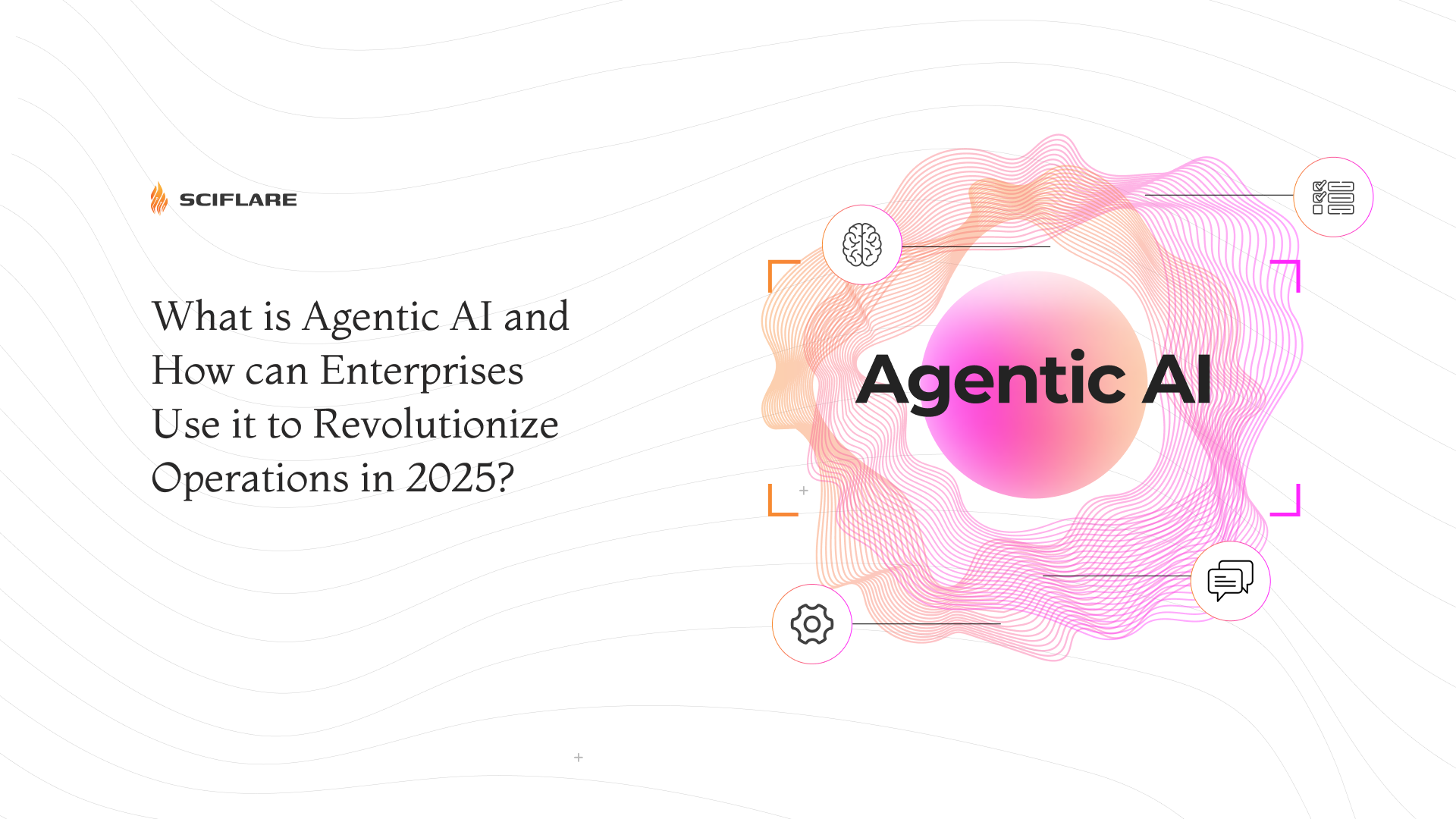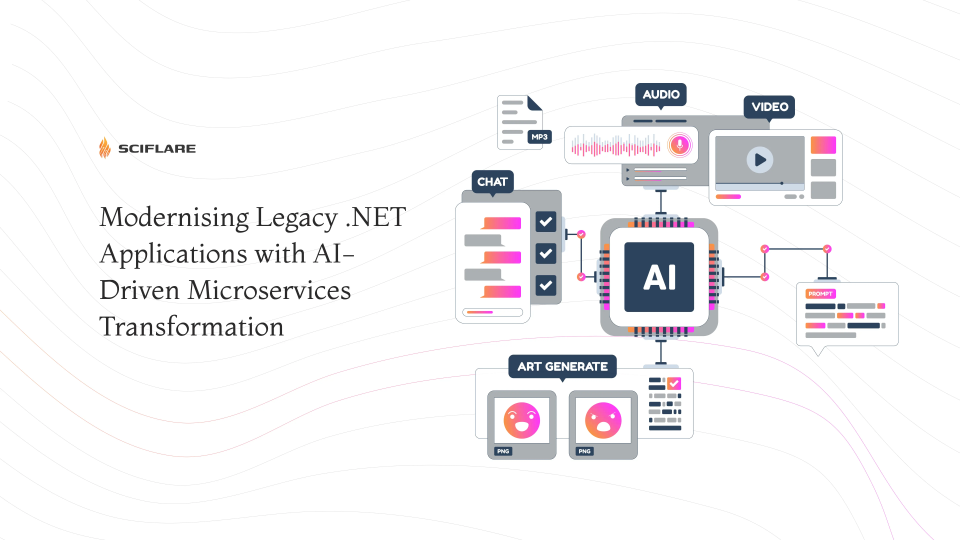
DevOps vs SRE vs Platform Engineering: Which Expertise Do You Need?
Written by: Shiva Kumaran
Quick Summary
DevOps unifies development and operations teams into a single function responsible for frequent iterations, accelerated development, and consistent quality releases.
Site Reliability Engineers focus on maintaining the system reliability and offer a systematic approach to product and service delivery.
Platform Engineering helps create an internal platform for developers to build and deploy quality applications at scale.
Introduction
In the age of rapid digital transformation, the need for reliable IT operations, accelerated development, and a robust foundation for scaling applications is a must-have for enterprises. This is where DevOps, SRE, and Platform Engineering come into the picture. DevOps eliminates silos from development and operations teams’ functioning for better speed, SREs help promote reliability in organizations, and Platform Engineering helps scale applications efficiently from the ground up. Understanding DevOps vs SRE vs Platform Engineering will help you identify the right expertise for your enterprise and ensure long-term scalability, agility, and adaptiveness in the long run with enhanced capabilities for digital excellence. Let’s find out how in this blog.
Understanding DevOps: What Are DevOps Benefits For Businesses?
DevOps is not just a list of tools and practices to follow for improved development efficiency. It is a culture that improves development output, efficiency, and speed by eliminating silos between development and operations teams, streamlining the software development lifecycle, and facilitating improved collaboration. This is a strategic necessity for modern-day enterprises to respond to evolving market demands with greater agility. Discussed below are DevOps benefits for businesses:
1\. Improved Collaboration
DevOps unifies development and operations teams, enabling enhanced collaboration across the software development lifecycle with prompt issue identification and resolution, elimination of manual work and errors from the same. With silos eliminated between both teams, the unified DevOps function serves as the core foundation for automated repetitive tasks, continuous integration and continuous delivery, and faster time to market.
2\. Agility
Obtaining agile transformation for your enterprise is one of the core motives behind understanding DevOps vs SRE vs Platform Engineering. With consistent quality releases, faster bug resolution, and faster iterations, a DevOps culture helps enterprises accelerate development and respond to evolving market conditions with greater flexibility. The unified collaborative approach helps enterprises align development with market demand, take customer feedback with regular feedback loops, and resolve issues before they affect the entire software development lifecycle.
3\. Risk-free Scalability
A DevOps culture enables resilient digital operations for enterprises by promoting consistent quality releases, eliminating manual errors, automating development, testing, and deployment, and implementing practices such as Infrastructure as Code (IAC), which improves production environments, testing, and development at better frequencies. These practices, along with feedback loops and continuous monitoring, help enterprises resolve issues quickly to achieve seamless user experiences at scale.
4\. Reduced Time To Market
Enterprises that hire DevOps engineers witness higher innovation velocity and greater flexibility while responding to market demands. This is a result of improved collaboration between development and operations teams, automation of manual tasks, and improved testing and delivery speed, which accelerates development and reduces time to market, giving enterprises a competitive edge. According to a report by the Business Research Company, the DevOps market value is estimated to be around $15.06 billion in 2025 and grow at a CAGR of 26.1% from 2025 to 2034, bearing testimony to the growing demand for DevOps among enterprises.
5\. Enterprise Security
A DevOps overview is incomplete without mentioning the enhanced security it facilitates for enterprise applications. DevOps engineers help enterprises prioritize security from the outset in fast-paced development, testing, and delivery frequencies. Practices like automated compliance, role-based access, and configuration management keep your systems secure from malicious risks and ensure smooth functioning consistently.
What is SRE? Understanding SRE Overview
SRE or Site Reliability Engineering refers to the practice of automating IT infrastructure tasks like application monitoring and system management using software tools for reliability during frequent development team updates. It helps enterprises improve the delivery and stability of the production environment. SRE promotes operational resilience by offering a systematic approach to product and service delivery. With SRE, enterprises can scale their services seamlessly as they grow and achieve greater efficiency in repeatability and predictability.
The main focus of SRE is to ensure the stability of processes, methods, and tools used by the enterprise in the development lifecycle. SRE experts help enterprises minimize failure rates and enable reliable performance for end users at scale. They establish the foundation for optimal development processes and tools to help enterprises build and deploy new products and features with greater flexibility and sustainability.
What Are The Main SRE Responsibilities?
Described below are the roles and responsibilities of a site reliability engineer:
Maintaining software reliability in production environments using automation tools.
Identifying potential issues and software and writing code to resolve them.
IT infrastructure management, change management, and emergency incident response among the core operations responsibilities.
Collaborating closely with the development team to develop new features and ensure production systems are scalable.
Promptly address escalation issues and creating an SRE process for the software team.
Enabling the customer support team with comprehensive documented procedures to help them address complaints.
Conducting post-incident reviews as part of process improvement to enhance the software development cycle.
Documenting all software issues and their respective solutions in a shared knowledge base for future use.
What Are SRE Best Practices?
Discussed below are key principles and best practices of SRE:
Accepting errors to be a part of the process of developing software and striving to monitor the performance of the software in alignment with service-level objectives (SLOs), service-level agreements (SLAs), and service-level indicators (SLIs).
Maintaining system reliability with small and frequent changes.
Leveraging automation tools in a consistent and repeatable manner to minimize risks because of changes, enhancing the speed and efficiency of implementing changes, and implementing feedback loops to monitor system performance.
Embedding reliability principles across the delivery pipeline with adequate processes and policies.
Prioritizing system resilience from the outset of software development with adequate architectural decisions.
Using the right metrics for analyzing service delivery and reliability, such as SLOs, SLIs, and SLAs.
What Is The Difference Between DevOps and SRE?
Discussed below are the core differences between DevOps and SRE:
1\. Primary Focus
DevOps teams focus on improving the development speed, efficiency, and quality over consistent releases, while SRE experts focus on ensuring the system is reliable and scalable.
2\. New Feature Implementation
DevOps teams implement new features according to product requirements, while SREs ensure that the implementation of new features is reliable and leads to minimal or no failures in production.
3\. Process Flow
DevOps teams understand the development environment and leverage their perspective to incorporate changes from development to production. SREs analyse production to minimise failure rates irrespective of changes from the development team.
4\. Core Objectives
DevOps eliminates silos between development and operations teams for streamlined software delivery and overall enhancement of the software development lifecycle. SRE experts maintain service uptime leveraging automation, incident response, and constant monitoring.
5\. Team Structure
A DevOps team consists of dedicated professionals for system administration, quality analysis, release management, software development, cloud architecture management, and leading teams. SRE teams consist of engineers who have development and operations skills.
What Is Platform Engineering?
In software development, platform engineering refers to creating and managing a shared platform for development teams that enables them to build, deploy, and manage applications. It helps enterprises achieve agility at scale by standardizing processes and paving the way for frequent, consistent, and quality releases.
Platform engineering provides infrastructure, standardized tools, and workflows for accelerated, consistent, and reliable software delivery. As a response to the ever-evolving complexity of software development environments, platform engineering eliminates the limitations of traditional system administrators and offers a self-service model for reducing reliance on operations teams and improving reliability and scalability across the organization. According to Gartner, “by 2026, 80% of large software engineering organizations will establish platform engineering teams as internal providers of reusable services, components, and tools for application delivery. Platform engineering will ultimately solve the central problem of cooperation between software developers and operators.”
What Are Platform Engineering Benefits In 2025?
Platform engineering revolutionizes software development by offering an automated self-service platform that maximizes operational efficiency, developer productivity, and enterprise security. Discussed below are the benefits of platform engineering in 2025:
1\. Improved Enterprise Security
When comparing DevOps vs SRE vs Platform Engineering, Platform Engineering enhances enterprise security by embedding security into design, rather than as an afterthought. This aligns with and supports DevSecOps principles, which prioritise security from the outset of the software development lifecycle. This eliminates potential threats and builds a culture of proactive monitoring and alertness.
2\. Enhanced Developer Productivity
Platform Engineering helps development teams focus on building and implementing new features instead of worrying about infrastructure management. It offers a central platform for building and deploying applications, and automates development tasks that were previously performed manually, improving developer productivity and efficiency to bring new products to markets faster.
3\. Simplified Compliance
Compliance is crucial for industries like gaming, healthcare, and finance. Without complying with ever-evolving regulations, enterprises in these industries cannot function seamlessly and offer transparency in their services. Platform Engineering simplifies compliance by incorporating compliance requirements into workflows and templates, integrating auditing tools that track the entire system’s actions. This simplifies the process of tracing dependencies, generating reports, and aligning processes with regulatory requirements.
4\. Cost Savings
Platform Engineering enables enterprises to save costs on infrastructure management by consolidating resource management. It promotes efficient utilization of resources and prevents development teams from spending on additional or superfluous infrastructure. Additionally, it eliminates manual development tasks and enables enterprises to deploy their technical resources more usefully.
5\. Scalability
Platform Engineering helps enterprises scale effectively and seamlessly respond to growing demands. It helps organizations manage increasing workloads and concurrent users, without extending the development time or reconfiguring settings. It enables the product to adapt to growing demand and scale effectively. This creates the space for implementing new technologies, complying with regulations, and adjusting storage to accommodate new requirements.
DevOps vs Platform Engineering: A Comparison
The core difference between DevOps and Platform Engineering is that DevOps focuses on enabling consistent and quality software releases, while Platform Engineering helps enterprises create centralized, self-service Internal Developer Platforms (IDPs) that help developers build and deploy scalable applications. Discussed below are the main differences between the two:
1\. Main Focus
While understanding SRE vs DevOps vs Platform Engineering, SRE focuses on the reliability and scalability of the tools and processes used for developing enterprise applications. DevOps aligns development and operations teams to automate workflows, enhance software development and delivery efficacy, and improve the software development lifecycle. Platform Engineering helps enterprises create self-service internal platforms for developing, deploying, and scaling quality applications.
2\. Roles and Responsibilities
The main roles in DevOps include DevOps engineers who align development and operations teams, implement and manage CI/CD pipelines, and leverage automation tools to enhance the entire software development lifecycle for frequent iterations and quality releases. Platform engineers function in a dedicated team that creates tools for developers to enable them to build and scale applications more effectively.
3\. Scalability
In DevOps vs SRE vs Platform Engineering, Platform Engineering offers the necessary support and resources required by DevOps to scale effectively. With the standardized processes, tools, and services created by Platform Engineering, DevOps teams can eliminate ad-hoc work, with everything to do on their own. Curated internal platforms help development teams across an enterprise, enabling development teams to quickly build and ship their build and deploy their applications while the platform teams manage the platform components.
4\. End Goal
CI/CD experts, automated tools, and continuous monitoring by DevOps teams enable faster iterations with good quality software releases. Platform Engineering teams eliminate all hassles from infrastructure management and operations, enabling developers to function more efficiently and build scalable applications.
DevOps vs SRE vs Platform Engineering: A Cost Comparison
Aspect
DevOps
SRE (Site Reliability Engineering)
Platform Engineering
Initial Setup Cost
$30,000–$60,000 (CI/CD pipelines, DevOps tools, basic training)
$50,000–$100,000 (Observability tools, SLO/SLA frameworks, runbooks)
$80,000–$150,000 (Platform buildout, reusable components, infra automation setup)
Average Annual Salary (USA)
$115,000–$145,000 per engineer ([Glassdoor 2025])
$130,000–$165,000 per engineer ([Stack Overflow Survey, LinkedIn Insights])
$135,000–$170,000 per engineer (Platform Engineers/Infra Architects with senior skills)
Team Size (Avg. for mid-size org)
3–6 engineers
2–4 engineers
2–3 engineers (Platform teams scale across dev orgs)
Tooling & Software (Annual)
$10,000–$25,000 (GitHub Actions, Jenkins, Docker, Terraform, monitoring tools)
$20,000–$40,000 (Datadog, Prometheus, PagerDuty, Incident Tools)
$30,000–$50,000 (Backstage, Kubernetes clusters, IDP stack, compliance modules)
Cloud Cost Optimization
Moderate (manual governance needed, possible cost sprawl)
High (automated scaling, fewer outages, proactive monitoring)
Highest (centralized controls, resource quotas, golden paths reduce waste)
Operational Efficiency ROI
6–12 months
12–18 months
12–24 months (longer setup, but compounding returns)
Redundancy Risk / Tool Duplication
High (teams may create siloed toolchains)
Medium (SREs unify some tools, but not fully centralized)
Low (central platform standardizes tooling for all dev teams)
Cost Per Deployment (Avg.)
$50–$150 (based on manual steps + partial automation)
$30–$100 (with automation, but added cost for reliability overhead)
$20–$70 (due to reusable pipelines, internal templates, and self-service)
Total Cost of Ownership (TCO) – Year 1
~$250K–$500K
~$300K–$600K
~$400K–$750K
Conclusion
While SRE vs DevOps vs Platform Engineering have different goals and purposes, all three contribute to improving software development efficacy for enterprises. While DevOps eliminates silos between development and operations teams, and directs seamless collaboration for quality releases, SRE maintains system reliability by applying software engineering principles to infrastructure management and operations. Platform Engineering, on the other hand, empowers developers to build and deploy scalable applications by offering internal self-service platforms for the same. As such, DevOps practices are implemented on the infrastructure Platform Engineering and Site Reliability Engineers develop, while Platform Engineering serves as a robust foundation for both, facilitating scale across teams. Get in touch with us to hire dedicated developers for any capability and maximize the return you get from your software development processes.
FAQs
1. What are DevOps principles?
The core principles of DevOps include:
Collaboration: Development and operations teams work in a unified manner to improve the software development lifecycle and work towards consistent, quality releases.
Automation: Automation of development, testing, and deployment tasks to eliminate manual errors, whereas CI/CD pipelines help streamline and accelerate the software development and delivery process.
Continuous Learning: Enterprises should focus on closely monitoring system performance with meaningful metrics and identify areas for improvement.
Collective Responsibility: DevOps promotes shared ownership of the end-to-end software development lifecycle.
DevOps Culture: Beyond a list of tools and checklist, DevOps is a culture embraced by enterprises that wish to thrive at scale.
2. Where to find DevOps engineers?
You can find top-tier DevOps engineers with distinctive technical expertise, extensive industry experience, and vast exposure at IT staff augmentation companies like Sciflare, from where you can hire them on a project basis.




